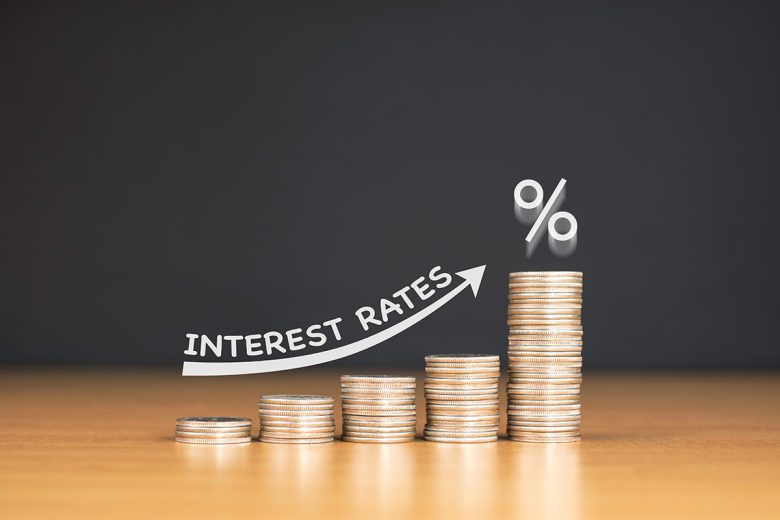When the major Aussie banks hike up their rates, it’s usually as a group and each hike is often widely reported and discussed. So what are interest rates and why are they so important? We look at the significance of interest rates and what you could do to get a better deal from your lender.
Interest rates and how they work
Interest is what a bank, lender, or credit provider charges for lending your money. The interest is an extra amount you need to pay on top of the amount of money you borrow. Interest is calculated based on the amount borrowed and the time you take to repay the loan. This means the more quickly you repay a loan, the less interest you pay. The higher the interest rate, the more you’ll end up paying in interest.
So how do interest rate relate to banks? The Reserve Bank of Australia (RBA) is Australia’s central banking system body and it sets the official interest rate, also known as the cash rate. The cash rate is the official rate at which banks can borrow money. If the banks can borrow money cheaply, they’re able to offer cheaper loans to consumers. If they cash rate goes up, the banks will pass on the higher costs of conducting loans to customers.
The RBA tends to lower interest rates to stimulate growth, on the assumption that the lower cost of borrowing will encourage more access to funds, more spending, and therefore stimulate the economy. On the other hand, if the economy is at risk of overheating and inflation is rising, the RBA might opt to raise interest rates.
How rate hikes impact your budget
Interest rate hikes impact your budget in a variety of ways, with your mortgage probably the most significant. With the hikes in late August this year, some consumers would have seen changes in their mortgage repayment obligations. Depending on your bank (and your mortgage), you might have ended up paying an extra $516 to $596 a year, for your mortgage.
When it comes to credit cards, a hike in interest rates might or might not impact the interest charged on any balance you leave unpaid. Whether or not you’ll be charged more in interest for outstanding amounts depends on your lender, who might pass on the change in cash rate or choose not to.
If you keep money earning interest in a savings account, a hike in the interest rate could lead to more interest accumulating in your account. As long as your lender passes on the higher interest to your term deposit or high-interest savings account, you could stand to benefit from the rate hike.
How to get a better deal from your bank
Experts recommend shopping around if you don’t like having to pay extra on your home loan. If you’re a customer of the big banks, it could be a good idea to look to smaller lenders, who might not have followed the big banks with their rate hikes. Start by asking your bank for a discount. If they turn you down, look around for alternatives. Let your bank know your thoughts and be prepared to act or walk away if they won’t budge.
You don’t need to stay with the same bank you’ve always been with. By shopping around, you could lock in a good bargain and save more than you thought you could. Alternative lenders could give you a better deal on everything from home loans to personal loans. Some of these could provide lower interest rates while giving you the opportunity to take up more attractive packages on the whole.
A lender might offer honeymoon rates for the first one or two years of your switching. These introductory rates tend to be much lower, allowing you to save more in the initial year or two. Make sure you’re happy with the default rate after the introductory period. If it’s much higher than what other lenders are offering, switching just for the the honeymoon rate might not help you save in the longer term.
Additionally, before switching, check the comparison rate to get an accurate idea of what the loan really costs. The comparison rate is the interest rate plus all the fees and charges payable. Familiarise yourself with all the fees and charges applicable on your new loan or product, whether it’s a mortgage, credit card, or some other type of loan.
The interest rates you’re charged on products like home loans are directly linked to the RBA’s policies as well as your bank’s own terms. These can change from time to time, and with a rate hike, you could end up paying hundreds of dollars more on your mortgage. Other loan products could also be affected. By checking how you’re impacted, negotiating with your bank, and being prepared to switch if you’re not happy, you could end up with a better deal and save more on your debt products.
SRG Finance is a trusted provider of same-day cash loans, and we can assist you with a personal loans. Find out more about applying for our products by contacting us today.

